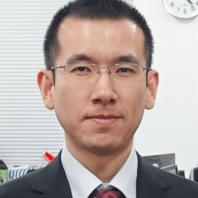![]()
![]()
Research Support Office Research Advancement Division. Tokyo University of Agriculture and Technology
| TEL | +81-42-367-5944 |
|---|---|
| FAX | +81-42-367-5946 |
This program is supported by MEXT’s scientific technology human resource development fee grant, "Program to Disseminate Tenure Tracking System".
Home > Introduction of our tenure-track faculties > Okano Taiji

Okano Taiji

| Affiliation | Institute of Engineering |
|---|---|
| Division | Division of Advanced Electrical and Electronics Engineering |
| Research field | Microfluidics, Nonequilibrium physics, Synthetic biology |
| Keyword(S) | Microfluidic device, Synchronization, Artificial cell model |
| Url | https://okano-web-en.blogspot.com/ |
| Research experience | ・Apr. 2008 - Mar. 2010: JSPS Research Fellow |
|---|---|
| Educational background | ・Mar. 2004: Bachelor of Science, Fukuoka University |
| Awards | |
| Selected papers and publications | ・T. Okano, K. Inoue, and H. Suzuki, "Deformation Modes of Giant Unilamellar Vesicles Encapsulating Biopolymers", ACS Synthetic Biology 7, 739 (2018). |
"Lifelikeness" is created by the high-level and elaborate interaction of biomolecules such as DNA and proteins. As it is unlikely that primitive organisms originally possessed such a mechanism, it is speculated that physical phenomena may have greatly influenced the determination of primitive cell behavior. Based on micro engineering, our laboratory utilizes knowledge in nonequilibrium physics and synthetic biology to investigate physical phenomena hidden deep in life phenomena, and explore physically possible scenarios where "lifelikeness" is generated from non-living things with the aim of constructing a physical model of cells.
I think the TUAT's tenure-track program is fulfilling because enough space and startup funding are provided. I also feel this program attractive for personal development as faculty member and researcher due to the assignment of students to my laboratory and an exchange meeting among tenure-track members.
I am so excited to discover “something” that has not yet been discovered, with my students.